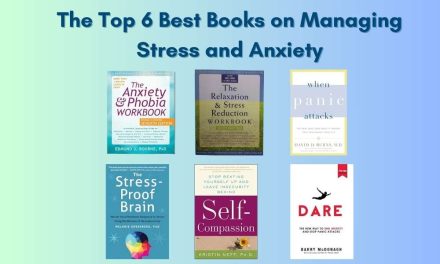Stress Management for Entrepreneurs and Small Business Owners is a critical aspect of ensuring long-term success and personal well-being. The entrepreneurial journey, while exciting and rewarding, is often marked by intense challenges, including financial pressures, time constraints, and the constant need to make critical decisions. These demands can lead to overwhelming stress, affecting health, productivity, and relationships.
Recognizing the importance of managing stress effectively is the first step toward creating a healthier, more balanced approach to business and life. This guide offers practical strategies and insights tailored specifically to entrepreneurs and small business owners, empowering them to handle stress, build resilience, and thrive both personally and professionally.
Understanding Stress

Stress is a regular response to external stressors, but when left unchecked, it can have a huge effect on physical and mental fitness. It often manifests as anxiety, fatigue or irritability, and accelerated stress can result in more extreme conditions which includes anxiety, melancholy or coronary heart sickness. Stress may be categorized into three essential kinds: acute stress, which happens in reaction to right now annoying conditions; chronic strain, which lasts for a long time frame; and eustress, a excellent form of pressure that motivates people to perform at a better stage. Recognizing the symptoms of strain is important for control and prevention – those signs and symptoms and symptoms can encompass irritability, difficulty concentrating, changes in sleep styles, or emotional outbursts.
Identifying Stress Triggers
Entrepreneurs and small business owners face unique stressors that can affect their overall well-being. Workload and time management challenges are common, as managing multiple responsibilities often leads to long hours and burnout. Financial pressures and uncertainty, such as fluctuating revenue or securing funding, add to the strain. Balancing professional and personal life is another significant challenge, with many struggling to meet the demands of both. Additionally, managing relationships with customers and employees can create stress, whether it involves handling complaints, maintaining team morale, or resolving conflicts. Identifying these triggers is the first step toward developing effective strategies to address them.
Building a Stress-Resilient Mindset

Developing a stress-resilient mindset begins with cultivating a positive outlook and mental flexibility, enabling entrepreneurs to navigate challenges with a solution-focused approach. This involves reframing setbacks as opportunities to learn and grow. Self-awareness plays a vital role in recognizing personal stressors and emotional responses, while emotional intelligence helps in managing emotions and fostering strong interpersonal relationships. Incorporating practices such as gratitude and mindfulness can further enhance resilience by promoting a sense of calm and focus, allowing business owners to stay present and appreciate progress, even in high-pressure situations.
Practical Stress Management Techniques
Implementing practical stress management techniques is essential for maintaining balance and productivity. Effective time management strategies like prioritizing tasks, delegating responsibilities, and creating structured schedules can alleviate the feeling of being overwhelmed. Relaxation methods, including deep breathing, meditation, and yoga, provide immediate relief from tension and improve overall mental well-being. Additionally, maintaining physical health through regular exercise, a balanced diet, and sufficient sleep supports both the body and mind, ensuring entrepreneurs have the energy and clarity needed to handle their demanding roles.
Leveraging Support Systems
A strong support system is a critical component of stress management for entrepreneurs. Building a supportive professional network allows business owners to share experiences, seek advice, and gain encouragement from like-minded peers. Mentorship or business coaching can provide valuable insights, helping to navigate challenges and make informed decisions. Additionally, maintaining open communication with family and friends fosters emotional support and understanding, ensuring personal relationships remain a source of strength rather than stress. Surrounding oneself with a reliable support system creates a foundation for resilience and balance in both personal and professional life.
Work-Life Balance Strategies
Achieving a healthy work-life balance is essential for long-term well-being and success. Setting clear boundaries between work and personal life prevents burnout by ensuring dedicated time for relaxation and connection with loved ones. Entrepreneurs should also prioritize hobbies and leisure activities, which provide opportunities for creativity, joy, and stress relief. Taking regular breaks and vacations not only rejuvenates the mind and body but also enhances productivity and focus when returning to work. By adopting these strategies, small business owners can enjoy a fulfilling life while managing the demands of their businesses effectively.
Managing Business Stressors Effectively
Proactively managing business stressors can reduce their impact on mental and emotional well-being. Planning and goal-setting are essential tools to mitigate uncertainty, offering clarity and a roadmap to achieve business objectives. By setting realistic and measurable goals, entrepreneurs can focus their energy and avoid feeling overwhelmed. Utilizing technology to automate and streamline operations, such as accounting software or project management tools, can save time and minimize repetitive tasks. Additionally, managing finances effectively through careful budgeting and seeking professional advice from accountants or financial planners ensures better control over financial pressures, creating a sense of stability and confidence.
Seeking Professional Help When Needed
There are times when stress can become overwhelming, making it vital to seek professional help. Recognizing the warning signs, such as persistent anxiety, insomnia, or feelings of helplessness, is the first step. Counselors and therapists play a crucial role in helping entrepreneurs develop coping strategies and process their emotions in a healthy way. Participating in stress management workshops and training programs can also provide practical tools and techniques tailored to individual needs. Seeking support is not a sign of weakness but a proactive step toward fostering resilience and maintaining both personal and professional well-being.
Read more: Breaking The Cycle of Procrastination and Stress
Conclusion
Stress Management for Entrepreneurs and Small Business Owners is not just about reducing stress but about fostering a sustainable approach to both business and personal life. By understanding stress, identifying triggers, and adopting practical techniques like time management, mindfulness, and physical wellness, entrepreneurs can significantly enhance their resilience. Building a strong support system and maintaining work-life balance are equally essential to navigating the pressures of entrepreneurship.
Ultimately, seeking help when needed and proactively managing business stressors can lead to improved productivity, better decision-making, and a healthier, more fulfilling life. Prioritizing stress management is an investment not only in the success of your business but also in your overall well-being. Remember, thriving as an entrepreneur begins with taking care of yourself.






